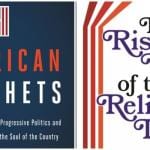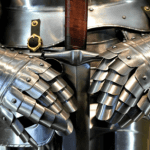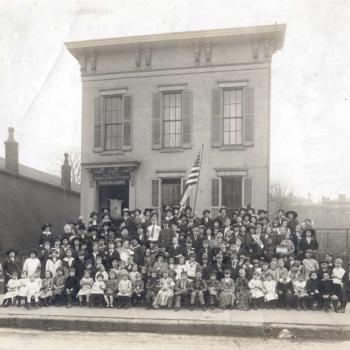Racism wasn’t a word I knew as a child. Yet racism churned all around me.
The small Texas town I lived in was almost 40% non-white. But my everyday life of school, church, family, and friends was mostly white. Yes, I played with black children on the playground, and set next to black teenagers in the band hall. These were aberrant splashes of color on a mostly pale canvas. Rarely did I attend a non-white friend’s birthday party. All my close friends were white. All my honors classes, in my 40% non-white high school, were mostly filled with white students (a sneaky way of hanging onto segregation). All the kids in my Sunday School class were white too. Occasionally a black family came to church, and we all shook their hands and welcomed them. But I don’t remember many attending for very long. The faces filling our Southern Baptist pews were as white as the face of Warner Sallman’s Jesus. The implicit racism of ‘separate but equal’ filled each day of my week—from school, to friends, to church.
But that was a long time ago. Racism was in my distant past, right? I thought, as an educated women’s history professor, I had removed my blinders of white privilege. I thought, as a pastor’s wife engaged in social justice and fighting for human equality, I understood the importance of treating all people as made in the image of God. I thought I had moved past my childhood and become an anti-racist.
I was wrong.
A reader pointed out that my first Because it is Time for Christian Patriarchy to End Reading List was filled with only white women. I was annoyed when I read the comment. Good grief, I thought, be patient. I am planning on including black women in my third post. I can’t do everything in 1000 words. As I continued to grumble, writing a defensive response to the reader, my discomfort increased. Several hours later I admitted the harsh truth. The reader was right. I was still complicit in racism. By removing black female scholars from their white counterparts, placing them in separate lists, I was perpetuating racism. I was implicitly suggesting that the white scholars should be considered separate, perhaps even better, than the black scholars. The realization staggered me. I had done exactly what I complain about white male scholars doing: relegating women into the ‘separate but equal’ shaded boxes on the side of the text–separating women from the main narrative, and thereby demeaning their role.
#ReadWomen is a hashtag I have been using for a while, but it is time to #CiteBlackWomen too. Indeed, while I was revising The Making of Biblical Womanhood, I realized how significantly the scholarship of black women improve the history of Christianity. I realized that I don’t need to #CiteBlackWomen because they need me–their scholarship doesn’t need my white stamp of approval.
I need to #CiteBlackWomen because their work makes the history we tell better.
So, with my confession comes my repentance: I have revised my first reading list. And I have made a commitment, as a scholar, to strive to #CiteBlackWomen. Not because I think they need me, but because I know for sure that my scholarship needs them.
Because it is Time for Christian Patriarchy To End: A Revised Reading List
Evangelicals simply don’t know the history of women in the church. 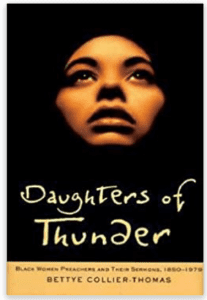 I have tackled this head on in my book, The Making of Biblical Womanhood, but until Spring 2021, let me tell you about a few already-published articles and books that would shift the conversation about women’s roles if evangelicals would simply read them. Here are the first five on my revised list (with more to follow in August).
I have tackled this head on in my book, The Making of Biblical Womanhood, but until Spring 2021, let me tell you about a few already-published articles and books that would shift the conversation about women’s roles if evangelicals would simply read them. Here are the first five on my revised list (with more to follow in August).
- Clarice J. Martin, “The Haustafeln (Household Codes) in African American Biblical Interpretation: ‘Free Slaves’ and ‘Subordinate Women’,” in ed. Cain Hope Felder Stony the Road We Trod: African American Biblical Interpretation. This groundbreaking article, first published by Martin in the 1991 (also ground breaking) volume Stony the Road We Trod, defines a “womanist scholar” as a black or woman-of-color feminist who “claims her roots in black history, religion, and culture.” The same year that the Evangelical world saw the publication of Wayne Grudem and John Piper’s Recovering Biblical Manhood and Womanhood, Martin argued how a womanist perspective completely disrupts attempts to apply a literal hermeneutic to the household codes (which is exactly what Grudem and Piper do). Her argument is forceful and clear (and I say more about it in my forthcoming The Making of Biblical Womanhood). I dare say while many evangelicals reading this post are familiar with John Piper and Wayne Grudem, you probably are not familiar with Clarice J. Martin. You should change that. It, along with her article “Womanist Interpretations of the New Testament: The Quest for Holistic and Inclusive Translation and Interpretation,” shows how narrow is the white patriarchal culture of evangelicalism and how much we need to listen to the voices of our brothers and sisters of color. Stony the Road We Trod is affordable and available in several formats.
- Bettye Collier-Thomas, Daughters of Thunder: Black Women Preachers and Their Sermons, 1850-1979. I absolutely love this book. Sadly, it is expensive. It can be found in used bookstores, through university libraries, and online through the HathiTrust Digital Library. Find a copy if you can! It publishes not only the sermons of several black preaching women, but makes their dry bones live–contextualizing them as women of God within their own denominations, families, and American culture. The first time I discovered it, I couldn’t put it down–reading it from beginning to end in one sitting. By the time I finished, all I could think was how this book would change everything if evangelical(white) women would read it. Take, as one example, Rosa Horn. She was the granddaughter of a slave who became a Pentecostal preacher during the 1930s. Listen to her words in her sermon “Was a Woman Called to Preach? Yes!“: “Let me say to the women whom God has called. Go Carry the Word to one and all!….Cry aloud, don’t take down, The day will soon be gone. God will bless you on that glorious morn, For all the golden sheaves you’ve won.” Find a copy if you can!
- Margaret Lamberts Bendroth, Fundamentalism and Gender: 1875 to the Present. This short (127 pages of text) and highly-readable history book was published in 1993 by Yale University Press and was written by a Christian woman historian. It is still in print, still affordable, and still relevant. Carefully, thoughtfully she explains how the “hierarchical model of fundamentalist and evangelical family life” was both constructed and reinforced, theologically as well as socially. “Ironically,” Bendroth writes, “though fundamentalists and evangelicals believed they
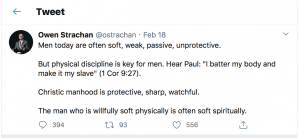 had successfully opposed the modern tide against family dissolution, their solution opened them to significant difficulties. Their model of family life provided women and children little protection from an abusive husband or father, whose domestic power was theoretically unlimited. And it left them entirely unprepared to answer the feminist critique of the nuclear family and the rising aspirations of middle-class women it fostered,” (p. 116). When I first read Bendroth, I felt like a cloud had lifted (seriously). I suddenly understood my evangelical world of small town Texas. I realized that so much I had thought was a part of Christianity was actually constructed very recently by humans (not God)
had successfully opposed the modern tide against family dissolution, their solution opened them to significant difficulties. Their model of family life provided women and children little protection from an abusive husband or father, whose domestic power was theoretically unlimited. And it left them entirely unprepared to answer the feminist critique of the nuclear family and the rising aspirations of middle-class women it fostered,” (p. 116). When I first read Bendroth, I felt like a cloud had lifted (seriously). I suddenly understood my evangelical world of small town Texas. I realized that so much I had thought was a part of Christianity was actually constructed very recently by humans (not God)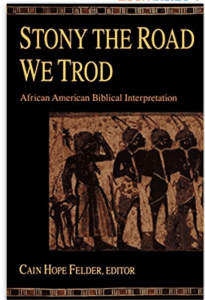 . Want to know why Owen Strachan has invented “Christic manhood”?–it starts with the history Bendroth lays out for us. And now, Kristin Kobes Du Mez has fleshed out this history in her epic Jesus and John Wayne: How White Evangelicals Corrupted a Faith and Fractured a Nation (I may have to save my review of Jesus & John Wayne until after The Making of Biblical Womanhood is published so that I can tell you my favorite part of Kristin’s book).
. Want to know why Owen Strachan has invented “Christic manhood”?–it starts with the history Bendroth lays out for us. And now, Kristin Kobes Du Mez has fleshed out this history in her epic Jesus and John Wayne: How White Evangelicals Corrupted a Faith and Fractured a Nation (I may have to save my review of Jesus & John Wayne until after The Making of Biblical Womanhood is published so that I can tell you my favorite part of Kristin’s book). - Merry E. Wiesner-Hanks, Women and Gender in Early Modern Europe. While I suspect many evangelicals have heard of Margaret Bendroth, I suspect most evangelicals have not heard of Merry Wiesner-Hanks (aside from my academic friends and students in women’s history courses). She is one of the foremost scholars on women’s history, gender history, and early modern Europe. I recommend reading almost anything by her. But, I think this text book is a really good place to start. First published by Cambridge University Press in 2008, there are four editions either still in print or available as used copies. The Introduction and first chapter “Ideas and Laws Regarding Women” do a really good job explaining the difference between women’s history and gender history (which I know just from reading Twitter that a lot of evangelicals conflate and confuse) as well as the historical roots for ideas about women’s inferiority and subordination. Wiesner-Hanks will also introduce evangelicals to two ideas we don’t like very much–first, the Reformation era may not have been as glorious as we thought, and second the ideas we equate with Christian womanhood are more global and less Christian than we have been taught. As she writes, “In Christianity, Judaism, and Islam, the sixteenth and seventeenth centuries were a time when the domestic nature of women’s acceptable religious activities were reinforced. The proper sphere for the expression of women’s religious ideas was a household, whether the secular household of a Jewish, Orthodox, Catholic, Protestant, or Muslim marriage, or the spiritual household of an enclosed Catholic convent” (p. 247 of the third edition). For evangelicals who need a broader and deeper understanding of women’s history, including how Christian history fits into a more global framework–this is a good place to start.
- Katherine L. French and Allyson M. Poska, Women & Gender in the Western Past, Volumes I & I This, hands down, is my favorite textbook on women’s history. It is also co-authored by another leading women’s historian, Katherine L. French at the University of Michigan, whose research focuses on women in late medieval and early modern England. Unfortunately this textbook (both volumes) is out of print, but you can still find as very affordable used copies. The textbook walks through the entirety of Western History with women as the primary focus. It provides really great introductions to important historical moments, like the Black Death, the Reformation, the French Revolution, and the great World Wars, and it helps us understand how women have always been a part of these historical moments. The reason I love this text so much is because it shows us something that evangelical women often don’t understand: women have always fought against patriarchy. Discontent isn’t a product of modern feminism, born in the aftermath of WWII. It is a continuous part of history as women have fought throughout history to be able to fulfill their callings as leaders, scholars, scientists, philosophers, business owners, and even preachers. As French and P
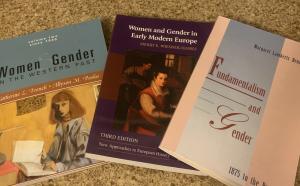 oska write, “We believe that patriarchy is systemic in Western culture and has been the central force curtailing the movement and rights of women…Gerda Lerner once said, ‘Women’s history is the primary tool for women’s emancipation.’ We hope that this textbook can be one small part of that project,” (p. xiv of Volume II). By showing how integral women have always been throughout history, and by showing how women have always fought against patriarchy, French and Poska more than accomplish their goal.
oska write, “We believe that patriarchy is systemic in Western culture and has been the central force curtailing the movement and rights of women…Gerda Lerner once said, ‘Women’s history is the primary tool for women’s emancipation.’ We hope that this textbook can be one small part of that project,” (p. xiv of Volume II). By showing how integral women have always been throughout history, and by showing how women have always fought against patriarchy, French and Poska more than accomplish their goal.
This is just a handful of texts to get you started–just a small taste of the history so many evangelicals lack. I am convinced that evangelicalism would be better if we simply knew our history better. So let me just conclude once again with the preaching words of Rosa Horn. Maybe they will inspire you as much as they do me
“Let me say to the women whom God has called. Go Carry the Word to one and all!….Cry aloud, don’t take down, The day will soon be gone. God will bless you on that glorious morn, For all the golden sheaves you’ve won.”
Happy reading! And stay tuned for more recommendations next time.


